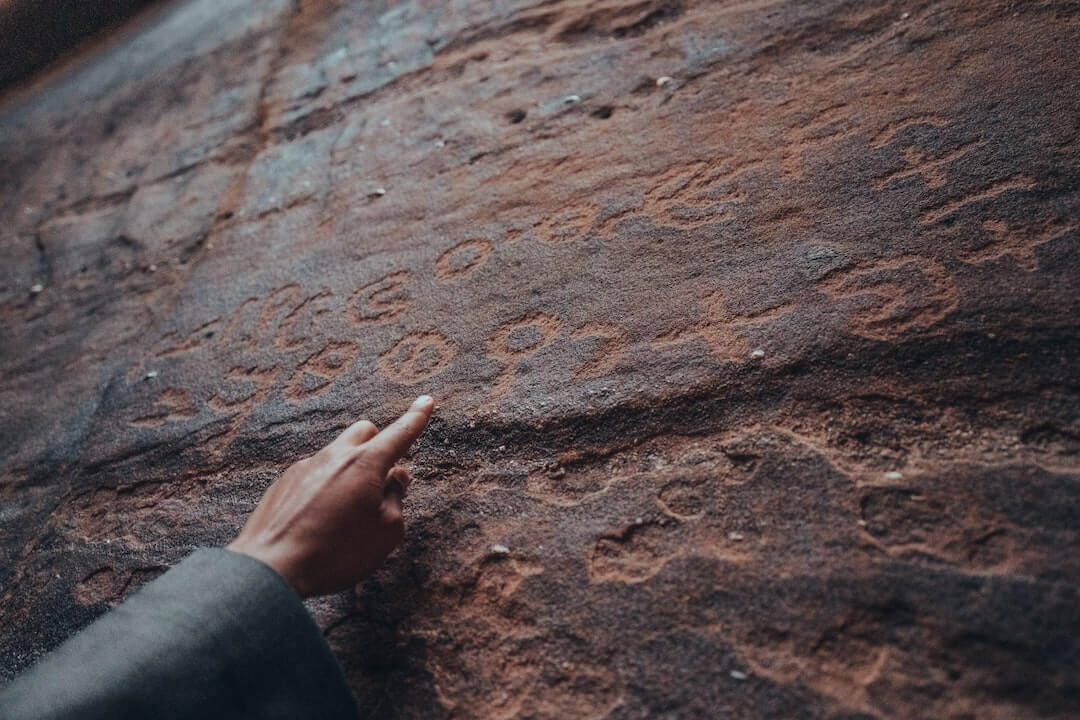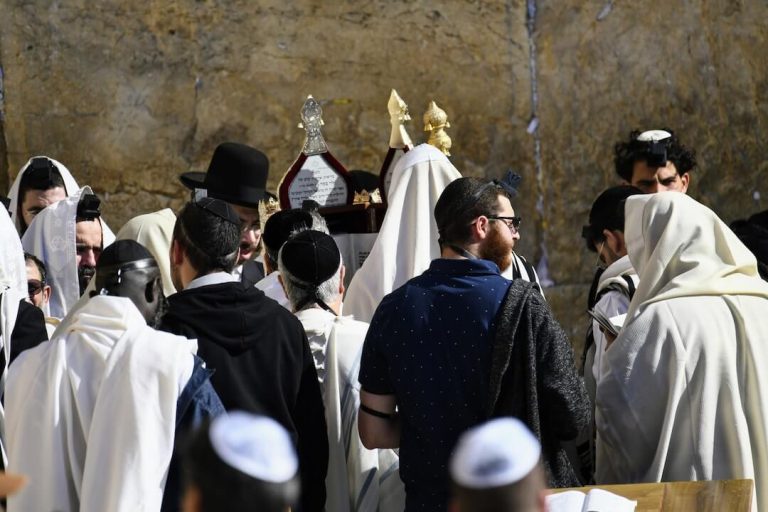Messianic Expectations in Judaism and Christianity
The concept of a messianic figure holds great significance in both Judaism and Christianity. In the Old Testament, the word “messiah” appears about fifty times and refers to three distinct figures – the priest, the king, and the prophet. However, in the later books of the Old Testament, such as Daniel, the term takes on a new meaning as an end-of-time savior who brings about peace and happiness.
This idea of a messiah as a providential figure who will bring about the Kingdom of God is a late development in Judaism and is not widely mentioned in ancient Jewish literature. In Christianity, the figure of Jesus is recognized as the messiah who fulfills and transcends the messianic expectations of both traditions.
This article aims to compare and analyze the perspectives of the Old and New Testament on the messianic figure, shedding light on the role and significance of this concept in both religious traditions.
Messianic Expectations in Judaism
The concept of the Messiah holds great significance in both Judaism and Christianity. In Judaism, the Messiah is seen as a prophesied leader who will bring redemption and salvation to the Jewish people.
Origins and History:
The origins of messianic expectations can be traced back to ancient Israel, with the promise of God’s blessing to Abraham and the establishment of the Davidic dynasty. Over the centuries, various prophets and biblical figures, such as Moses and King Solomon, contributed to the development of these expectations.
Post-Temple and Medieval Views:
After the destruction of the Second Temple, messianic beliefs evolved, with some views emphasizing the spiritual and abstract nature of the Messiah. In medieval times, scholars like Abraham Ibn Daud contributed to the research and literature on the Messiah in Judaism.
Kabbalah and Contemporary Views:
In contemporary Judaism, the Kabbalah and Zohar play a significant role in shaping messianic expectations. Views on the Messiah vary among different branches of Judaism, from a belief in a personal messiah to a more symbolic and collective understanding.
Role in Eschatology:
In Jewish eschatology, the Messiah plays a crucial role in bringing about the restoration of Israel and establishing the kingdom of God on earth. This belief has been a source of hope and comfort for the Jewish people throughout history.
Messianic Expectations in Christianity
The concept of the Messiah holds great significance in Christianity, as it is believed that Jesus Christ is the promised Messiah. The New Testament draws upon the Old Testament to establish Jesus as the fulfillment of messianic expectations. Jesus’ contemporaries saw him as the long-awaited Messiah, and his followers believed in his role as the “Son of God” and the savior of humanity.
In Christian beliefs, the Messiah plays a crucial role in salvation and the coming of God’s kingdom. The Messiah is seen as a figure of hope, bringing about redemption and fulfillment of God’s promises. The New Testament also presents the Messiah as a just and righteous ruler who will establish peace on earth.
While there are similarities between the messianic expectations in the Old and New Testament, there are also notable differences. The New Testament places emphasis on Jesus’ divinity and spiritual salvation, while the Old Testament focuses more on a physical and earthly rule of the Messiah. The Messiah is a central figure in Christian eschatology, and his return is eagerly awaited by believers.
Comparing the Old and New Testament Perspectives
When comparing the messianic expectations in the Old and New Testament, several similarities and differences emerge. Both traditions share the belief in a promised Messiah or anointed one who will bring God’s blessing to the nations. The Old Testament focuses on the expectation of a king from the Davidic dynasty, while the New Testament presents Jesus as the fulfillment of these expectations.
In the Old Testament, the Davidic kings play a crucial role in messianic expectations. The Davidic dynasty is seen as the line from which the Messiah will come, and the Psalms and Chronicles emphasize the connection between the Davidic monarchy and the Jerusalem Temple.
Interpretations of prophecies differ between the two traditions. The Psalms speak of a future king who will exercise universal dominion, while the Book of Daniel presents visions of a coming King who will establish an everlasting kingdom.
Both the Old and New Testament highlight the significance of Jerusalem and the Jerusalem Temple in messianic expectations. Jerusalem is seen as the holy city where God dwells, and the Temple is the center of worship and the Davidic kings’ role in God’s redemptive purposes.
The Messiah as a Figure of Hope and Salvation
The concept of the Messiah holds significant importance in both Judaism and Christianity, representing a figure of hope and salvation. In Judaism, the Messiah is seen as the anointed one who will bring about redemption and fulfill the prophecies of the Hebrew Bible. This expectation is rooted in the belief that God will eventually triumph over evil and establish a kingdom of justice and peace.
In Christianity, the Messiah is identified as Jesus Christ, who is believed to have fulfilled the Messianic prophecies of the Old Testament. He is seen as the savior who brings salvation and eternal life to believers through his death and resurrection.
Both traditions associate the Messiah with themes of justice, righteousness, and peace. The Messiah is seen as the ultimate source of justice, ensuring fairness and equity for all. Additionally, the Messiah embodies righteousness, living a life in accordance with God’s will and serving as a moral example for humanity.
Evolving Views of the Messiah
Throughout history, the concept of the Messiah has evolved and taken on different meanings in both Judaism and Christianity. The destruction of the Second Temple in 70 CE had a significant impact on messianic beliefs and led to a shift in perspectives. While some viewed the destruction as a sign of the Messiah’s imminent arrival, others began to see the Messiah as a spiritual and abstract figure rather than a physical ruler.
Jewish research and literature, such as the writings of Abraham Ibn Daud, also played a role in shaping evolving views of the Messiah. In contemporary Jewish views, there is a diversity of beliefs and understandings of the Messiah, with some placing more emphasis on the role of the Messiah in the present world rather than a future messianic age.
Similarly, within Christianity, there is a range of interpretations and beliefs about the Messiah, with different denominations placing varying levels of importance on this figure. As society and culture continue to evolve, so too do the perspectives on the Messiah in both religions. Despite these changes, the enduring significance and hope associated with this prophesied leader remain a central aspect of both Judaism and Christianity.
Conclusion
In conclusion, the concept of the Messiah holds great significance in both Judaism and Christianity. Throughout history, the Jewish people have held onto the hope of a promised Messiah who will bring about justice, righteousness, and peace. Similarly, in Christianity, the belief in Jesus as the Messiah is essential to salvation and the establishment of the kingdom of God.
While there are similarities between the Old and New Testament perspectives on the Messiah, there are also differences in interpretation and understanding. The destruction of the Second Temple and the evolution of religious thought have shaped the evolving views of the Messiah in both traditions. Despite these differences, the concept of the Messiah remains a central figure of hope and salvation for both Jews and Christians. As we continue to explore and discuss messianic expectations, we are reminded of the enduring significance of this figure and its impact on both religions.







